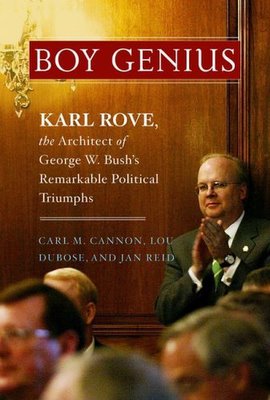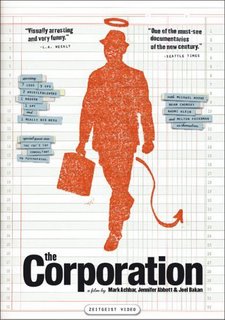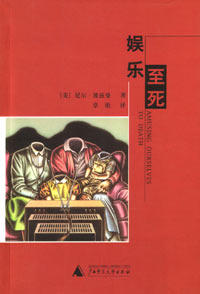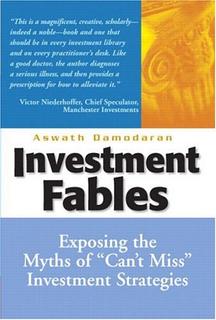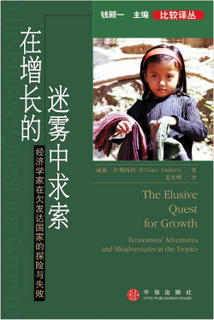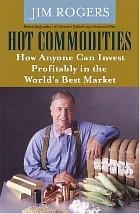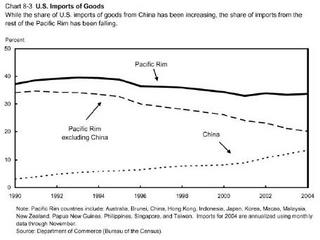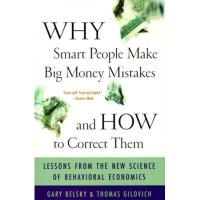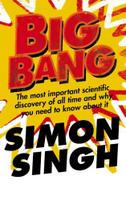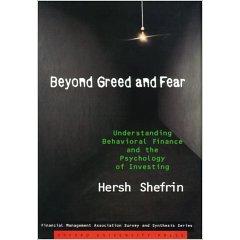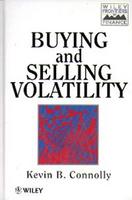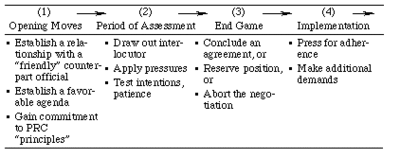天下烏鴉一樣黑,
香港的生命科技公司早前不也被人踢爆了嗎.
Ghost StoryAt Medical Journals, WritersPaid by Industry Play Big RoleArticles Appear Under NameOf Academic Researchers,But They Often Get HelpJ&J Receives a Positive 'Spin'By ANNA WILDE MATHEWSStaff Reporter of THE WALL STREET JOURNALDecember 13, 2005; Page A1In 2001, the American Journal of Kidney Diseases published an article that touted the use of synthetic vitamin D. Its author was listed as Alex J. Brown, an associate professor at Washington University in St. Louis.
But recently, that same article was featured as a work sample by a different person: Michael Anello, a free-lance medical writer, who posted a summary of it on his Web site. Mr. Anello says he was hired to write the article by a communications firm working for
Abbott Laboratories, which makes a version of the vitamin D product. Dr. Brown agrees he got help in writing but says he redid part of the draft.
It's an example of an open secret in medicine: Many of the articles that appear in scientific journals under the bylines of prominent academics are actually written by ghostwriters in the pay of drug companies. These seemingly objective articles, which doctors around the world use to guide their care of patients, are often part of a marketing campaign by companies to promote a product or play up the condition it treats.
A HIDDEN ROLE?Now questions about the practice are mounting as medical journals face unprecedented scrutiny of their role as gatekeeper for scientific information. Last week, the New England Journal of Medicine admitted that a 2000 article it published highlighting the advantages of
Merck & Co.'s Vioxx painkiller omitted information about heart attacks among patients taking the drug. The journal has said the deletions were made by someone working from a Merck computer. Merck says the heart attacks happened after the study's cutoff date and it did nothing wrong.
The Annals of Internal Medicine tightened its policies on writer disclosure this year after a University of Arizona professor listed as the lead author of a Vioxx article in 2003 said he had little to do with the research in it.
The practice of letting ghostwriters hired by communications firms draft journal articles -- sometimes with acknowledgment, often without -- has served many parties well. Academic scientists can more easily pile up high-profile publications, the main currency of advancement. Journal editors get clearly written articles that look authoritative because of their well-credentialed authors.
Increasingly, though, editors and some academics are stepping forward to criticize the practice, saying it could hurt patients by giving doctors biased information. "Scientific research is not public relations," says Robert Califf, vice chancellor of clinical research at Duke University Medical Center. "If you're a firm hired by a company trying to sell a product, it's an entirely different thing than having an open mind for scientific inquiry. ...What would happen to a PR firm that wrote a paper that said this product stinks? Do you think their contract would be renewed?"
Drug companies say they're providing a service to busy academic researchers, some of whom may not be skilled writers. The companies say they don't intend for their ghostwriters to bias the tone of articles that appear under the researchers' names.
Authors "have to sign off on everything," says Mark Horn, a
Pfizer Inc. medical director. "This is properly viewed as a way to more efficiently make the transition from raw data to finished manuscript." Professors who get writing help generally say they give the writers input and check the work carefully.
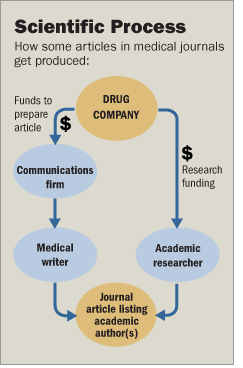
The criticism of ghostwriting is one of several issues that have put scientific journals on the defensive. Even journal editors acknowledge they have sometimes done a poor job of detecting when articles cherry-pick favorable data to promote a particular drug or treatment. Some health insurers have stopped taking what they read in the journals on faith and are employing analysts to scrutinize articles for negative data that are buried.
It's hard to say how widespread ghostwriting is. An analysis presented at a medical-journal conference in September found that just 10% of articles on studies sponsored by the drug industry that appeared in top medical journals disclosed help from a medical writer. Often the help isn't disclosed. An informal poll of 71 free-lance medical writers by the American Medical Writers Association found that 80% had written at least one manuscript that didn't mention their contributions.
In the case of the vitamin D article, Dr. Brown says Abbott asked him to write it but he didn't have time. He had written an earlier article on the subject. "They said they would have one of their people write it, update my old review article and I would check it," he recalls. Mr. Anello, a Milwaukee writer who studied biochemistry at the University of Wisconsin, says he wrote the new article. "I've done a lot of ghostwriting jobs," he says, adding that sometimes he works closely with the named authors. (
See related document excerpts.)
Dr. Brown says he had to rewrite "at least 30% to 40%" of Mr. Anello's draft. In retrospect, he says, he probably should have asked Abbott who Mr. Anello was and "if that person should be acknowledged." Abbott said the article's content was "under the complete discretion" of Dr. Brown and didn't discuss details. The journal's managing editor declined to comment because the journal is under new management.
Following questions from The Wall Street Journal, Mr. Anello removed the article summary from his Web site. Until recently, his online bibliography listed other scientific publications he has written under others' bylines that have yet to be published. The byline on one was "author to be named."
Medical writers frequently have scientific backgrounds. Some work for universities, drug companies or medical-communications firms, while others are free-lancers who typically get $90 to $120 an hour. A communications firm may charge $30,000 or more to have a team of writers, editors and graphic designers put together an article. Some of these firms are part of larger companies in publishing and advertising such as
Thomson Corp. and
Reed Elsevier PLC.
Elsevier's Excerpta Medica unit helps clients craft publications for prestigious scientific journals. Elsevier itself publishes many such journals, most notably The Lancet. Excerpta Medica says on its Web site that its relationship with its corporate parent's journals "allows us access to editors and editorial boards." (
See related excerpt.)
But Sabine Kleinert, an executive editor at The Lancet, says she has never worked with Excerpta Medica and rejects articles that have a marketing spin. "Promotion has a different goal than publishing a legitimate research study," says Dr. Kleinert. She suspects companies sometimes influence medical writers "to write it up in a certain way to make a product sound more efficacious than it is."
A 1999 document that turned up in a lawsuit describes Pfizer's publications strategy for its antidepressant Zoloft. The document, prepared by a unit of ad giant
WPP Group, includes 81 different articles proposed for journals. They would promote the drug's use in conditions from panic disorder to pedophilia. (
See related excerpt.)
Author 'to Be Determined'For some articles, the name of the author was listed as "TBD," or "to be determined," even though the article or a draft was listed as already completed. Several of the listed articles ultimately ran in scientific publications -- including one in JAMA, the Journal of the American Medical Association -- without disclosing the role of outside writers.
In a statement responding to questions from The Wall Street Journal, Pfizer said agencies sometimes "pull together first draft manuscripts" based on information provided by researchers who will serve as authors. It says the academics who were later given credit as lead authors of the "TBD" articles were instrumental in designing the studies that the articles described. The lead authors said they had input into the drafts and approved the final papers.
In recent years, more journal editors have begun demanding that academic authors of studies explain their exact roles and disclose any work by medical writers. The editors say the writers can perform a valuable role so long as it's disclosed to readers.
Writers agree -- and the American Medical Writers Association is pressing for greater acknowledgment of its members' work. But some medical writers say they fear articles with full disclosure are likely to get bounced. Editors "say they want disclosure, but if you do it, they scream, 'ghostwriter!' " says Art Gertel, who oversees medical writing at Beardsworth Consulting Group in Flemington, N.J. "Despite the cries for transparency, the journal editors still feel that there's an element of corruption if a medical writer is paid by a drug company."
Catherine DeAngelis, JAMA's editor in chief, says even a conscientious journal can only go so far in policing academics. "I don't give lie-detector tests to people," Dr. DeAngelis says.
BMJ, a British medical journal, has one of the toughest disclosure policies, but it can get misled. Last year, a note at the end of a BMJ article on painkillers and asthma said the article was "conceived and initiated" by its three academic authors. Lead author Christine Jenkins "performed the analysis and drafted the paper," the note said, adding that the work wasn't funded by a drug company. Dr. Jenkins is a senior researcher at Australia's Woolcock Institute of Medical Research, which has ties to the University of Sydney. (
See related excerpts.)
In fact, a medical writer paid by
GlaxoSmithKline PLC helped draft the manuscript, the drug company confirms. The analysis was almost identical to an earlier, unpublished one that the company says was "initiated" by that writer. Both analyses concluded that acetaminophen or Tylenol (sold under a different name by GlaxoSmithKline in Britain) was safer for asthma patients than aspirin or other painkillers. (
See related excerpts.)
Dr. Jenkins says the structure of her work was "suggested" by the company version but she and the other authors did their own analysis. Dr. Jenkins says she personally "wrote a very large chunk" of the BMJ article and worked closely with the writer. Dr. Jenkins and GlaxoSmithKline declined to give the writer's name.
Dr. Jenkins says she didn't know that the company paid the writer. GlaxoSmithKline didn't pay Dr. Jenkins for the BMJ article, but the company previously paid her to speak at a conference and has given a major grant to the Woolcock Institute.
In a statement, GlaxoSmithKline says the paper "should have disclosed the involvement of a medical writer compensated by GSK." The company says it "regards the omission as a lapse on the part of GSK."
Fiona Godlee, BMJ's editor, says Dr. Jenkins "should have declared the involvement of the medical writer." Dr. Godlee says the journal will print papers that involve a medical writer, but she believes "the actual authors have to be incredibly closely involved."
When articles are ghostwritten by someone paid by a company, the big question is whether the article gets slanted. That's what one former free-lance medical writer alleges she was told to do by a company hired by
Johnson & Johnson.
Instruction SheetSusanna Dodgson, who holds a doctorate in physiology, says she was hired in 2002 by Excerpta Medica, the Elsevier medical-communications firm, to write an article about J&J's anemia drug Eprex. A J&J unit had sponsored a study measuring whether Eprex patients could do well taking the drug only once a week. The company was facing competition from a rival drug sold by
Amgen Inc. that could be given once a week or less.
Dr. Dodgson says she was given an instruction sheet directing her to emphasize the "main message of the study" -- that 79.3% of people with anemia had done well on a once-a-week Eprex dose. In fact, only 63.2% of patients responded well as defined by the original study protocol, according to a report she was provided. That report said the study's goal "could not be reached." Both the instruction sheet and the report were viewed by The Wall Street Journal. The higher figure Dr. Dodgson was asked to highlight used a broader definition of success and excluded patients who dropped out of the trial or didn't adhere to all its rules.
The instructions noted that some patients on large doses didn't seem to do well with the once-weekly administration but warned that this point "has not been discussed with marketing and is not definitive!"
The Eprex study appeared last year in the journal Clinical Nephrology, highlighting the 79.3% figure without mentioning the lower one. The article didn't acknowledge Dr. Dodgson or Excerpta Medica. Dr. Dodgson, who now teaches medical writing at the University of the Sciences in Philadelphia, says she didn't like the Eprex assignment "but I had to earn a living."
The listed lead author, Paul Barré of McGill University in Montreal, says Excerpta Medica did "a lot of the scutwork" but he had "complete freedom" to change its drafts. Dr. Barré says he helped design the study and enroll patients in it. In statements, J&J and Excerpta Medica offered similar explanations of the process. J&J says it regularly uses outside firms "to expedite the development of independent, peer-reviewed publications."
A J&J spokesman said he wasn't familiar with the details of the instruction sheet and referred questions about the highlighted data to Dr. Barré, who said he never interacted with J&J's marketing department and doesn't believe the article was biased. He said the higher figure was "more representative" because those patients followed the study's rules. "Without wanting to distort data, you always want to put the spin that's more positive for the article," Dr. Barré says. "You're more likely to get it published."
Hartmut Malluche, an editor of Clinical Nephrology, declined to comment on details of the article. The journal doesn't require authors to disclose the role of medical writers. But after hearing Dr. Dodgson's story, Dr. Malluche said he would suggest changing the policy. "It's not good if the company has control over the article," he says.
Some academics are protesting ghostwriting. Adriane Fugh-Berman, an associate professor at the Georgetown University School of Medicine, says she received an email last year from a company hired by drug maker
AstraZeneca PLC. The email offered her the chance to get credit for writing an article. "... [W]e will forward you a draft for your input so that you would need only to review and then advise us of any changes required," it said.
She says she was shown a draft but declined the offer. Then the Journal of General Internal Medicine asked her to peer-review a version of the same article, submitted by a different researcher. She decided to go public, and wrote about her experience in the journal.
AstraZeneca and the communications firm say it was all a mistake. Dr. Fugh-Berman should have been shown a different article from the one she was later asked to peer-review, they say. The article for peer review was in fact written by the author who submitted it to the journal, they say. AstraZeneca says it "does not support the practice of ghostwriting" and always discloses any support it gives to academic authors.
John Farrar, a pain expert at the University of Pennsylvania, says he once turned down a company's offer to give him a ghostwritten draft about a study on which he had worked. "They said, 'That's unusual,' " Dr. Farrar recalls. He wanted to write the manuscript himself because "you can put your spin on it. ...The way it is written -- the way it's structured -- is yours."


